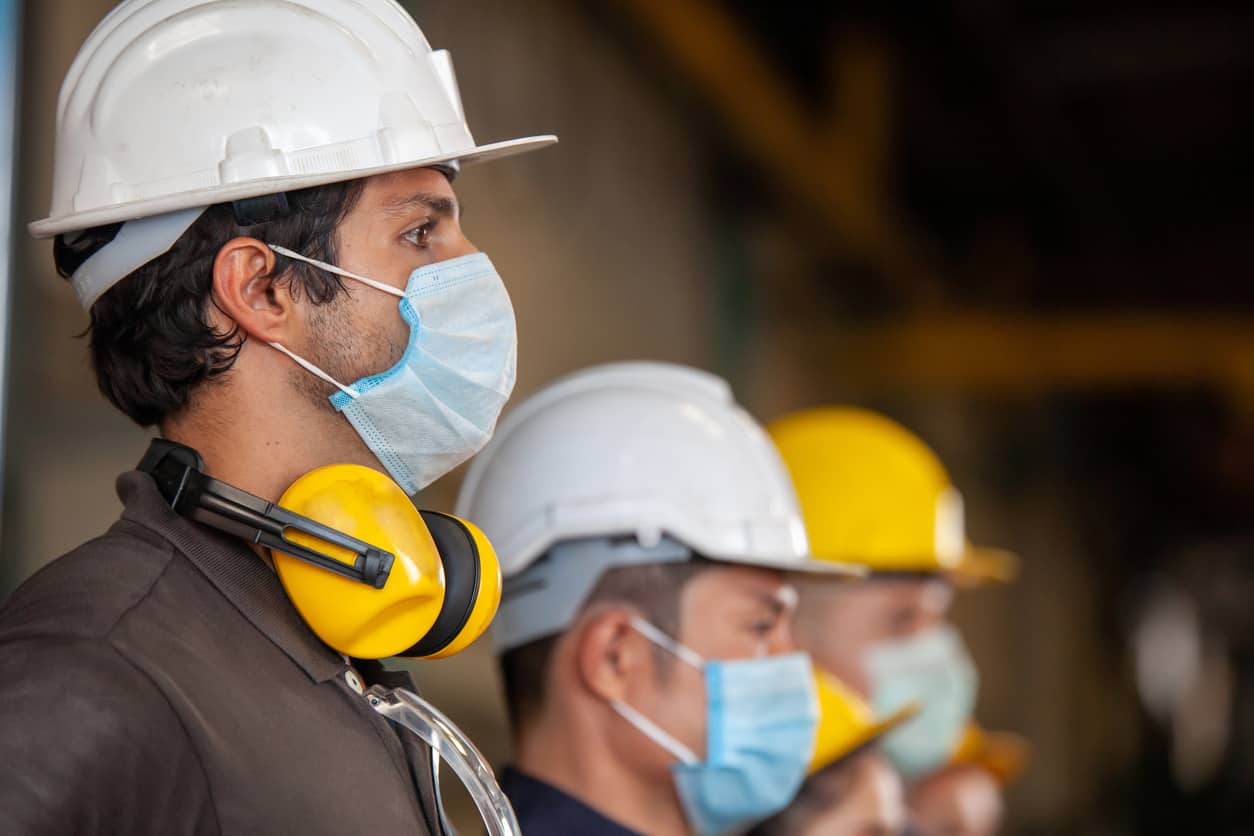Hannah Finnie is a writer in Washington, D.C. interested in the intersections of work and culture. She is a graduate of Harvard Law School.
The Supreme Court will hear fast-tracked oral arguments today in a consolidated set of cases challenging the Biden administration’s OSHA Emergency Temporary Standard (ETS) protecting workers against contracting COVID-19 at work and challenging a similar mandate from the Department of Health and Human Services (HHS).
The OSHA ETS requires companies with 100 or more employees to have employees either get vaccinated against COVID-19 or be subject to testing once a week and wear a mask at work. OSHA is empowered to create emergency temporary standards that can function for six months without going through the usual notice and comment rulemaking process “when it determines that a rule is ‘necessary’ to protect employees from a ‘grave danger’ from exposure to ‘physically harmful’ ‘agents’ or ‘new hazard,’” according to SCOTUSblog. Applying this standard to COVID-19, OSHA determined that COVID-19 fit the bill of being both physically harmful and a new hazard, and posed grave danger to unvaccinated workers. This rule was challenged by 27 states (led by Ohio) and the National Federation of Independent Business, which also led a challenge to the ACA in National Federation of Independent Business v. Sebelius.
The second Biden administration COVID-19 rule the Supreme Court will hear a challenge to is an HHS rule requiring health care workers at facilities participating in federal Medicare or Medicaid programs to get vaccinated, with the possibility of a medical or religious exemption.
Taken together, these two rules have the possibility of affecting the conditions of millions of workers. The OSHA ETS covers around two-thirds of the private sector and the HHS rule covers approximately 10 million workers (though some workers could be covered by both rules). The Supreme Court will be deciding whether the rules can stay in place while challenges make their way up through the courts. As a Washington Post article noted, the Supreme Court itself has stricter COVID-19 protocols than the OSHA rule requirements.
In other news, Student Workers of Columbia, a union of instructors, researchers, and teaching assistants at Columbia University, announced late last night it had reached a tentative agreement for its first contract with the school. The union and the school had been bargaining for three years, and the union went on a 10-week strike in the process of reaching this agreement.
In addition, Comic Book Workers United declared victory in its union election last night, which it says makes it the first unionized comic book publisher in the U.S.






Daily News & Commentary
Start your day with our roundup of the latest labor developments. See all
February 25
OSHA workplace inspections significantly drop in 2025; the Court denies a petition for certiorari to review a Minnesota law banning mandatory anti-union meetings at work; and the Court declines two petitions to determine whether Air Force service members should receive backpay as a result of religious challenges to the now-revoked COVID-19 vaccine mandate.
February 24
In today’s news and commentary, the NLRB uses the Obama-era Browning-Ferris standard, a fired National Park ranger sues the Department of Interior and the National Park Service, the NLRB closes out Amazon’s labor dispute on Staten Island, and OIRA signals changes to the Biden-era independent contractor rule. The NLRB ruled that Browning-Ferris Industries jointly employed […]
February 23
In today’s news and commentary, the Trump administration proposes a rule limiting employment authorization for asylum seekers and Matt Bruenig introduces a new LLM tool analyzing employer rules under Stericycle. Law360 reports that the Trump administration proposed a rule on Friday that would change the employment authorization process for asylum seekers. Under the proposed rule, […]
February 22
A petition for certiorari in Bivens v. Zep, New York nurses end their historic six-week-strike, and Professor Block argues for just cause protections in New York City.
February 20
An analysis of the Board's decisions since regaining a quorum; 5th Circuit dissent criticizes Wright Line, Thryv.
February 19
Union membership increases slightly; Washington farmworker bill fails to make it out of committee; and unions in Argentina are on strike protesting President Milei’s labor reform bill.